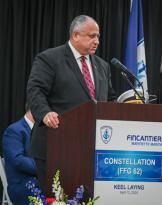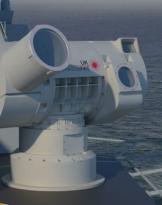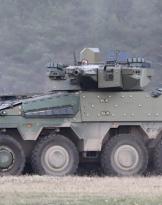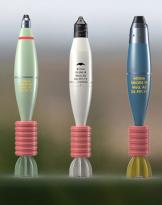newcleo, a clean and safe nuclear technologies company engaged in the development of innovative Generation IV reactors using existing nuclear waste as fuel, announces that it has signed an agreement with Fincantieri (BIT: FCT), one of the largest shipbuilding companies in the world, and RINA, multinational inspection, certification, naval classification and engineering consultancy.
Under this agreement, the three companies combine their deep international expertise and innovation expertise to jointly carry out a feasibility study for nuclear applications in the marine sector, leveraging newcleo's lead-cooled small modular reactor (SMR) technology.
The use of newcleo's innovative lead-cooled fast reactor (LFR) for marine propulsion would involve the installation of a closed mini-reactor on ships, which would function like a small nuclear battery capable of producing 30 MW of electrical power. This would require sporadic refueling (only once every 10-15 years), very limited maintenance and easy replacement of the reactor at the end of its life.
Using clean nuclear energy to power ships would help rapidly decarbonise an industry grappling with huge consumption of fossil fuels and resulting carbon emissions. The shipping industry, through the International Maritime Organization (IMO), approved last week at the MEPC(80) the new targets for reducing greenhouse gas emissions, to zero them by or around 2050.
Although the shipping industry still transports 90% of the world's goods and the IMO's fourth GHG study 2020 confirms that its carbon dioxide emissions are less than 3% of total man-made CO2 emissions, the actions of the big players in this sector have the potential to drive markets and generate trends.
Furthermore, the use of nuclear energy on ships safeguards the marine ecosystem in the event of an accident. With newcleo's design, the liquid lead within the reactor would solidify as it cooled on contact with cold water, enclosing the reactor core in a solid shell and containing all radiation due to lead's shielding properties.
Finally, newcleo marine prolusion reactors would eliminate the current need for frequent refueling and, at the end of their life, the entire LFR unit would simply be removed and replaced with a new one, while the spent unit would be hauled away for decommissioning and reprocessing.












